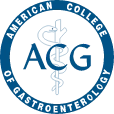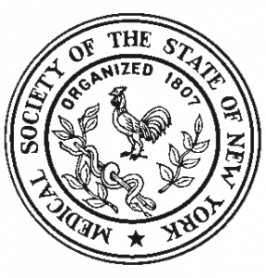An upper endoscopy is a common procedure used to examine the digestive tract and diagnose conditions such as ulcers, gastritis, or gastroesophageal reflux disease (GERD). One of the most frequently asked questions about this procedure is, what is the recovery time for an upper endoscopy?
Dr. Yuriy Israel at Gastroenterology & Nutrition, P.C. explains, “Most patients recover from anesthesia within 20 to 30 minutes. However, we recommend resting for the remainder of the day before resuming normal activities.”
If you have questions about undergoing an upper endoscopy in Forest Hills, New York, or need expert care for digestive issues, our team at Gastroenterology & Nutrition, P.C. is here to help.
What Happens During an Upper Endoscopy?
An upper endoscopy involves inserting a thin, flexible tube with a camera (endoscope) through the mouth and into the digestive tract. The procedure is typically performed under sedation or light anesthesia to ensure patient comfort.
- Preparation: Your doctor will likely instruct you to fast for at least 8 hours before the procedure to ensure your stomach is empty.
- During the procedure: The provider will guide the endoscope through the upper part of the gastrointestinal tract to look for abnormalities.
- Duration: The procedure itself usually takes between 5 to 15 minutes.
What to Expect After an Upper Endoscopy?
After the procedure, you will be moved to a recovery area where medical staff will monitor you as the anesthesia wears off. Here’s what you can expect during the recovery period:
Immediate Recovery (20-30 minutes):
- You may feel drowsy or groggy as the sedation wears off.
- Most patients are fully awake and alert within 20 to 30 minutes.
- You might have a mild sore throat or bloating, but these symptoms typically subside quickly.
Post-Procedure Instructions:
- You will need someone to drive you home since sedation can temporarily impair your ability to drive or make decisions.
- Avoid eating or drinking until the numbness in your throat wears off to prevent choking.
- You can usually resume normal activities the same day, but it’s best to take it easy for the rest of the day.
Follow-Up:
Your doctor will review the results of your endoscopy with you. If a biopsy is taken, results typically take a few days. Your doctor will follow up with you accordingly.
If you’re looking online for upper endoscopy near me, Gastroenterology & Nutrition, P.C. offers early diagnosis and treatment options to avoid further complications.
Factors That May Affect Recovery Time
While most patients recover quickly, certain factors can influence how long it takes to recover after an upper endoscopy:
- Type of Sedation: The type and amount of sedation used can affect how quickly you recover. Light sedation typically wears off faster than deeper sedation.
- Overall Health: Patients with underlying health conditions may take longer to recover.
- Complications: Although rare, complications such as bleeding or perforation can prolong recovery time.
Tips for a Smooth Recovery
To ensure a smooth and quick recovery after an upper endoscopy, consider the following tips:
- Stay hydrated once the numbness in your throat wears off.
- Start with light, bland foods if you experience any throat discomfort.
- Avoid alcohol for at least 24 hours after the procedure, as it may interact with the sedation.
- If you have a sore throat, throat lozenges, or a warm saltwater gargle can help ease discomfort.
When to Seek Medical Attention
While complications from an upper endoscopy are rare, it’s important to be aware of signs that may indicate a problem. Contact your doctor if you experience:
- Severe or persistent abdominal pain
- Difficulty swallowing
- Chest pain
- Fever
- Vomiting blood or passing black, tarry stools
Why Choose Gastroenterology & Nutrition, P.C. for Your Upper Endoscopy?
At Gastroenterology & Nutrition, P.C., we specialize in providing expert care for upper endoscopy procedures. Our experienced team uses state-of-the-art technology to ensure accurate diagnoses and a comfortable experience for every patient.
From your initial consultation to recovery, we focus on your safety, comfort, and well-being.
Ready to take the next step toward better digestive health? Contact Gastroenterology & Nutrition, P.C. today to schedule your consultation and experience the care and expertise you deserve.
Frequently Asked Questions
Q: Can I eat before an upper endoscopy?
No, you will need to fast for several hours before the procedure to ensure your stomach is empty. Your doctor will provide specific instructions based on your situation.
Q: How often should I have an upper endoscopy?
The frequency of upper endoscopies depends on your medical condition. Your doctor will recommend how often you should have the procedure based on your health needs.
Q: Is an upper endoscopy painful?
The procedure is not painful due to the sedation. You may experience mild discomfort, such as a sore throat or bloating, after the procedure, but this is usually temporary.
Disclaimer
This article is for educational purposes only and is not medical advice. Consult professionals for any gastroenterological concerns or before starting any treatment. Do not ignore professional medical advice due to the information read here. The authors are not responsible for any outcomes from the use of this information.




